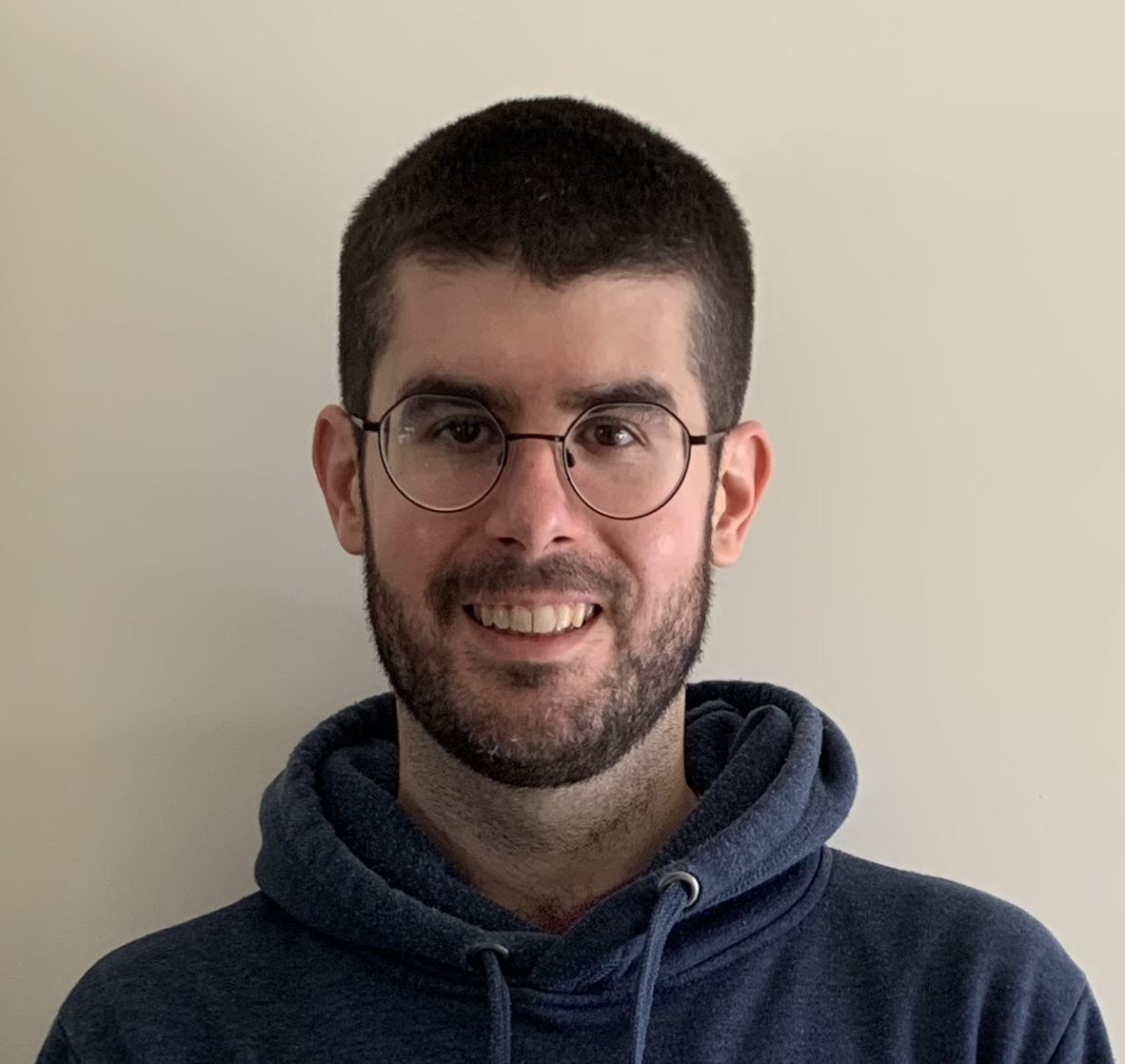Laurent holds a Ph.D. in Psychology (Cognitive Neuroscience profile) from the Université de Montréal, focusing on visual information processing for object recognition, supervised by Frédéric Gosselin and Karim Jerbi. He also completed a postdoctoral fellowship at Yale University in Nick Turk-Browne’s lab, where he continued his research on visual perception using behavioral tasks, neuroimaging, and artificial intelligence. As postdoctoral fellow in Dr. Lippé’s lab, Laurent is developing computational methods to discriminate neurodevelopmental disorders and continues his study of sensory processing in multiple populations. Throughout his career, Laurent has received several scholarships from the Vision Health Research Network, SSHRC, NSERC, and FRQNT, in addition to being a recipient of awards from SQRP, CPA, and the Vision Sciences Society.
In his free time, Laurent enjoys reading, running, and playing the piano.
Publications:
Caplette, L. & Turk-Browne, N. B. (2024). Computational reconstruction of mental representations using human behavior. Nature Communications. DOI: 10.1038/s41467-024-48114-6
Gosselin, F., Daigneault, V., Larouche, J.-M., & Caplette, L. (2024). Reclassifying guesses to increase signal-to-noise ratio in psychological experiments. Behavior Research Methods. DOI: 10.3758/s13428-023-02158-6
Caplette, L., Jerbi, K., & Gosselin, F. (2023). Rhythmic information sampling in the brain during visual recognition. Journal of Neuroscience, 43(24), 4487–4497. DOI: 10.1523/jneurosci.1838-22.2023
Caplette, L., Gosselin, F., & West, G. (2021). Object expectations alter information use during visual recognition. Cognition, 214:104803. DOI: 10.1016/j.cognition.2021.104803
Wiesmann, S. L., Caplette, L., Willenbockel, V., Gosselin, F., & Võ, M. L.-H. (2021). Flexible time course of spatial frequency use during scene categorization. Scientific Reports, 11:14079. DOI: 10.1038/s41598-021-93252-2
Caplette, L., Ince, R. A. A., Jerbi, K., & Gosselin, F. (2020). Disentangling presentation and processing times in the brain. NeuroImage, 218:116994. DOI: 10.1016/j.neuroimage.2020.116994
Caplette, L., Gosselin, F., Mermillod, M., & Wicker, B. (2020). Real-world expectations and their affective value modulate object processing. NeuroImage, 213:116736. DOI: 10.1016/j.neuroimage.2020.116736
Caplette, L., Wicker, B., Gosselin, F., & West, G. (2017). Hand position alters vision by modulating the time course of spatial frequency use. Journal of Experimental Psychology: General, 146(7), 917–923. DOI: 10.1037/xge0000296
Caplette, L., Wicker, B., & Gosselin, F. (2016). Atypical time course of object recognition in Autism Spectrum Disorder. Scientific Reports, 6:35494. DOI: 10.1038/srep35494
Dupuis-Roy, N., Fiset, D., Dufresne, K., Caplette, L., & Gosselin, F. (2014). Real-world interattribute distances lead to inefficient face gender categorization. Journal of Experimental Psychology: Human Perception and Performance, 40(4), 1289–1294. DOI: 10.1037/a0037066
Caplette, L., West, G., Gomot, M., Gosselin, F., & Wicker, B. (2014). Affective and contextual values modulate spatial frequency use in object recognition. Frontiers in Psychology, 5:512. DOI: 10.3389/fpsyg.2014.00512
